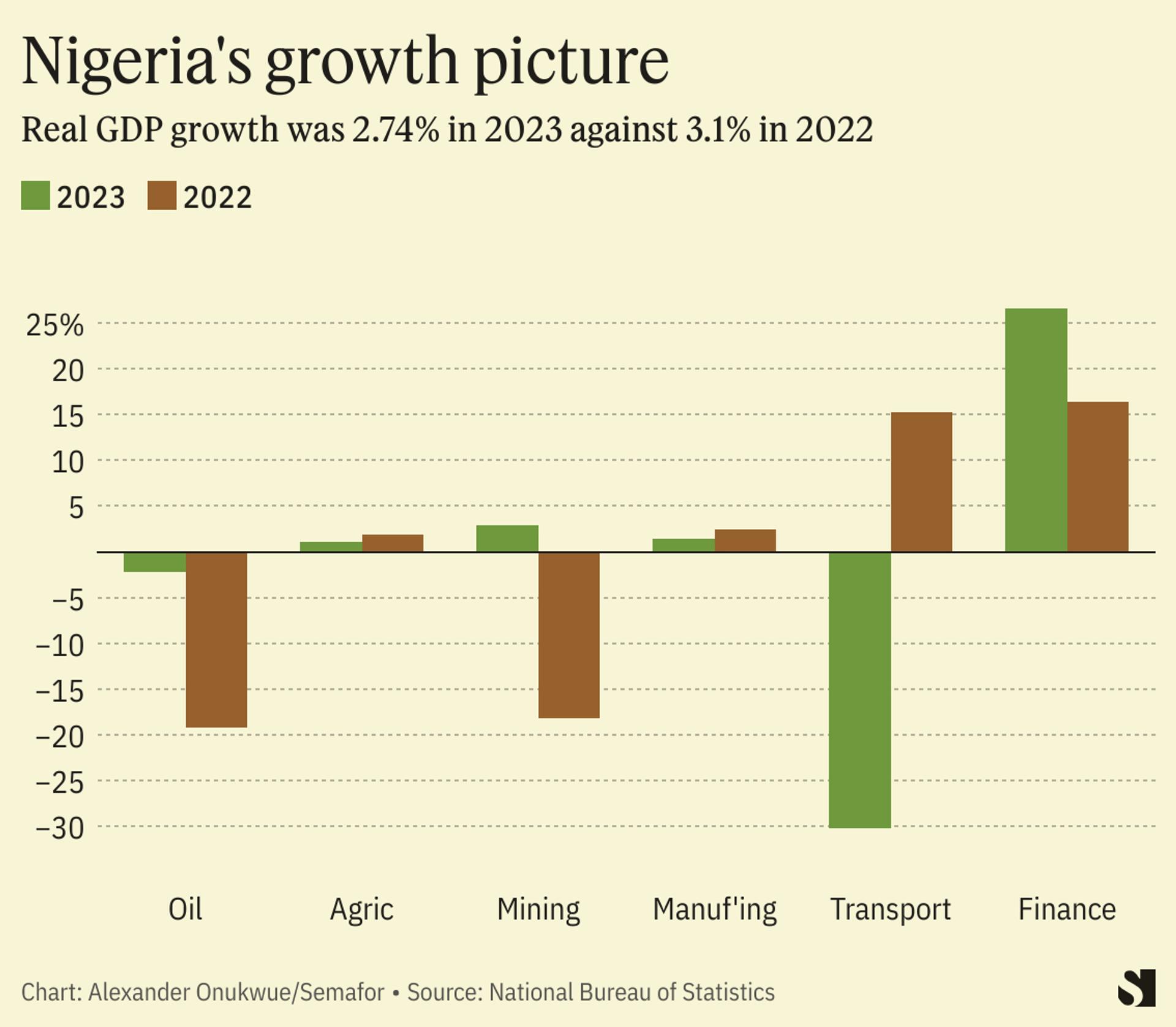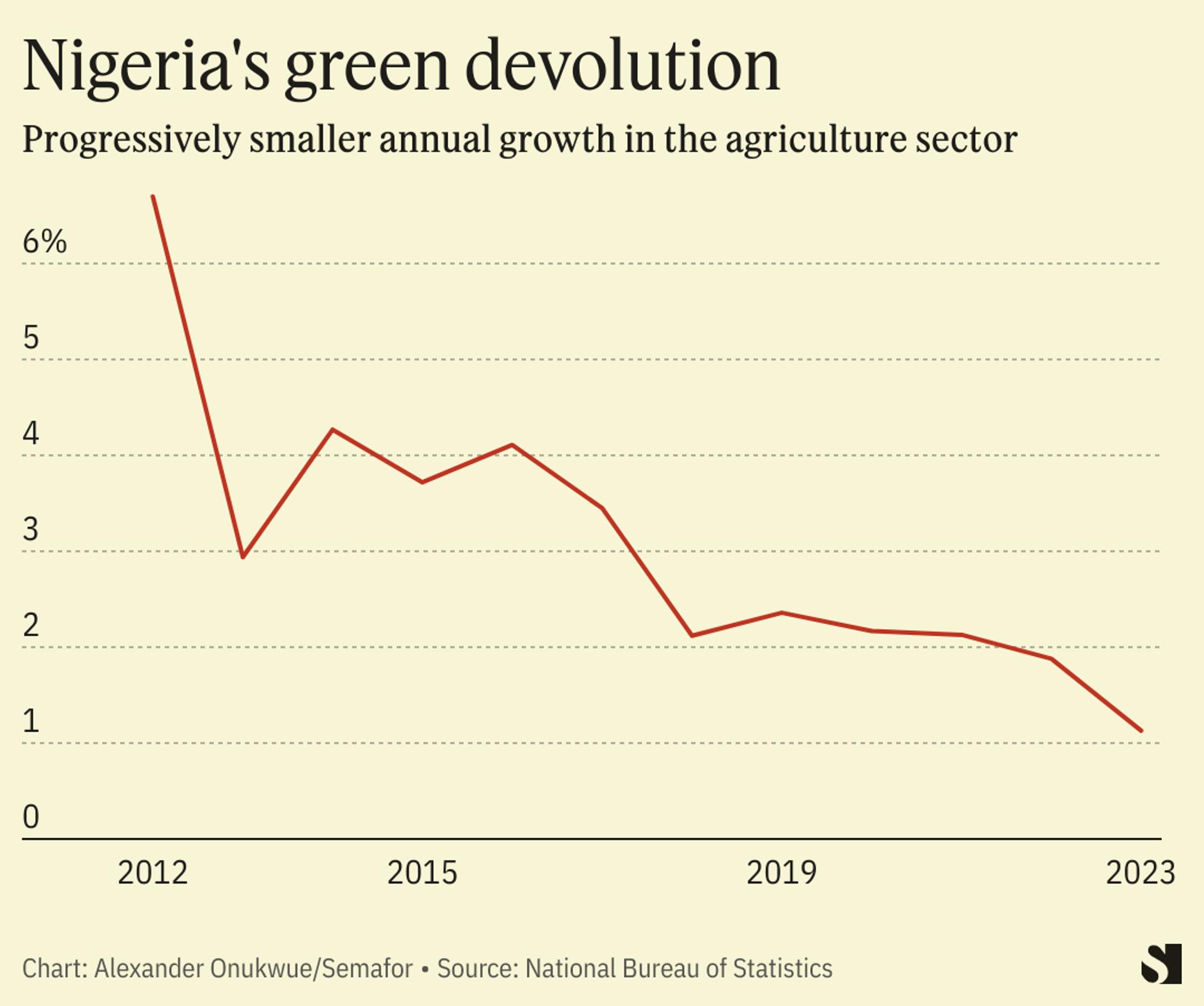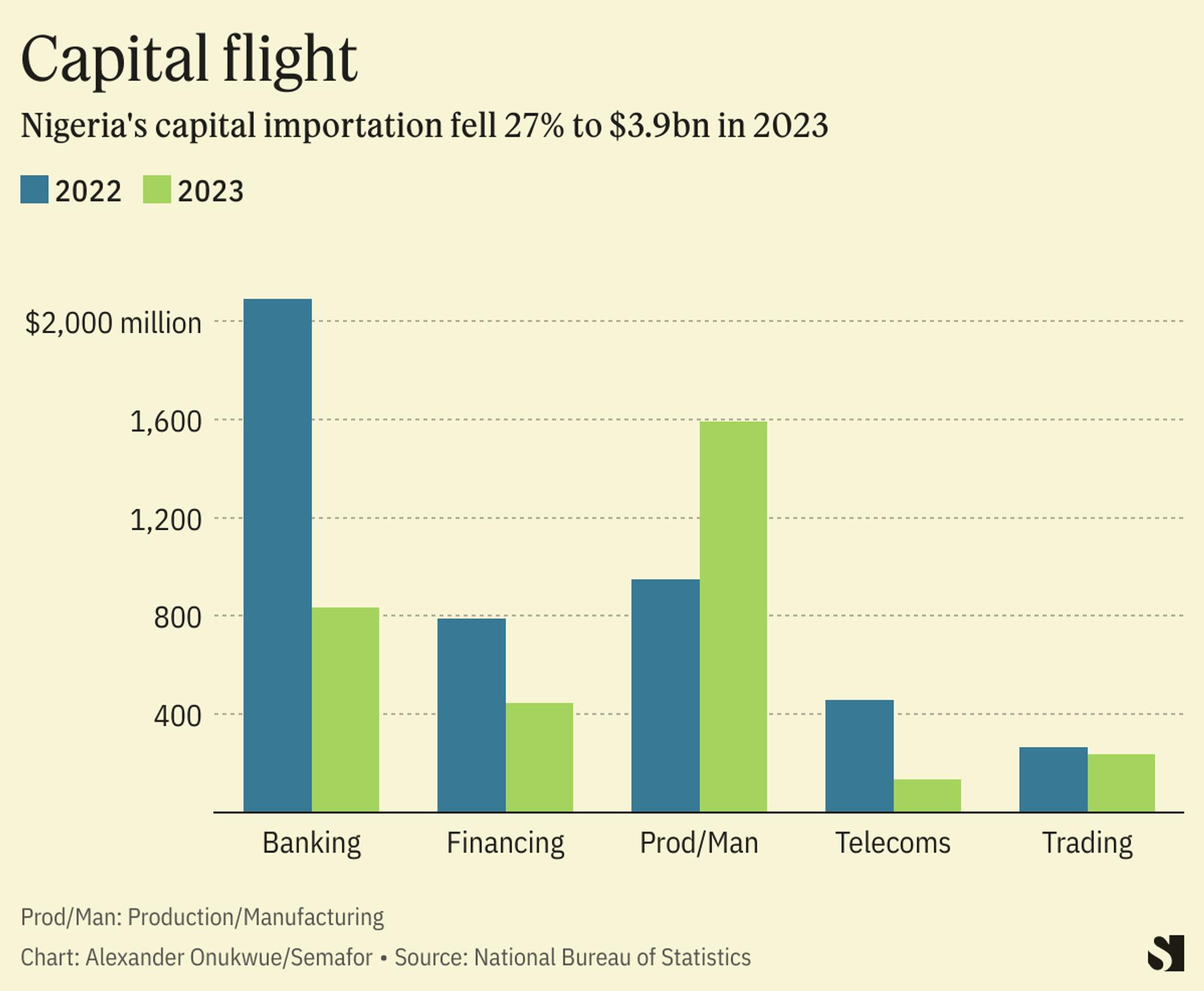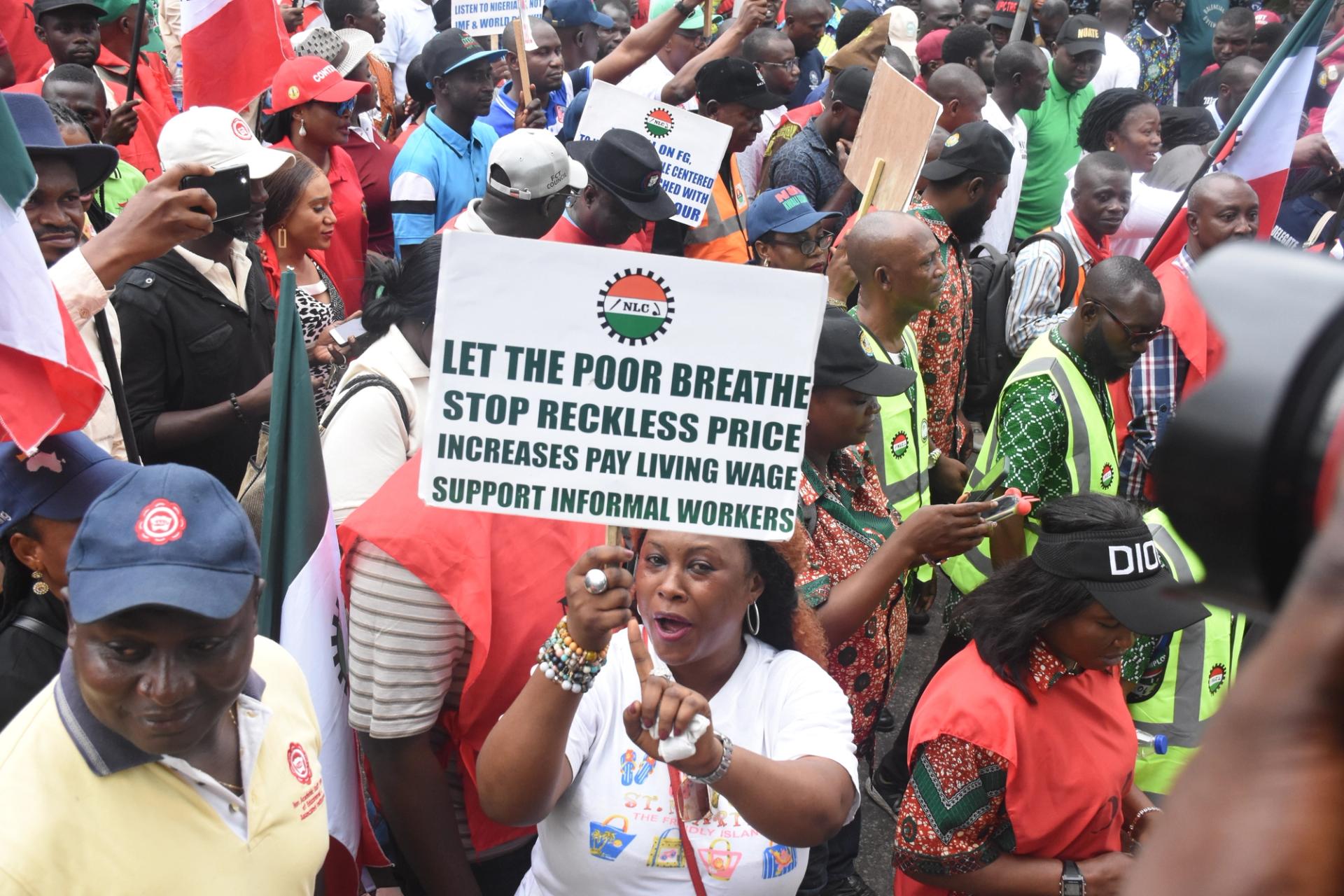The News
Nigeria’s economy grew at 2.7% last year, the lowest rate since the country’s recession in 2020, according to the state-run National Bureau of Statistics (NBS).
The performance came on the back of reduced growth across nearly all sectors of Africa’s largest economy from agriculture and trade to manufacturing and construction. The finance sector was a notable exception. Activity in the oil and mining sectors rebounded after shrinking in 2022.

A change of government last May heralded new policy directions for Nigeria. A years-long petrol subsidy program was ended while a fixed peg for the naira currency against the dollar was scrapped. The period since has been marked by rising prices and a continuously depreciating naira, fueling widespread hardship.
Two main labor unions for government employees plan to hold protests this week. They say the government is yet to implement cost-of-living adjustments agreed to last October as prices rose in response to the subsidy removal.
Know More
Analysts welcomed the Nigerian oil sector’s recovery, marked by a 12% growth in the last three months of the year. But the reduction of the overall economy in dollar terms from $471 billion to $356 billion in 2023 is “bad news” for President Bola Tinubu’s ambitions of a trillion-dollar economy, said Wilson Erumebor, an economist at the Nigeria Economic Summit Group think tank.
Here are three other charts that show the state of Nigeria’s economy in 2023.
💡Transportation: Tinubu’s termination of the petrol subsidy saw pump prices triple across the country, leading to corresponding hikes in transportation fares. Road travel fared the worst of the major means of transportation, shrinking 55% in the three months up to June and continuing until December. Petrol prices have risen further this month.

💡Agriculture: While it consistently accounts for a quarter of GDP, Nigeria’s agriculture sector is increasingly posting smaller annual growth, with a little over 1% growth last year. The last time it grew over 3% was in 2017. Food inflation, on the other hand, has surged. It is currently at 35%, according to the NBS.

💡Capital importation: The flow of capital into Nigeria’s economy reduced by 27% to $3.91 billion in 2023, marking the lowest figure since 2007. Most major sectors of the economy recorded steep inflow falls, except the production/manufacturing, and information technology sectors. Loans of $2.31 billion made up more than half of the total inflows, as foreign direct and portfolio investment each reduced by about 19%.

Notable
Nigerians are questioning the wisdom of implementing the petrol subsidy removal. Michael Famoroti, an analyst at Lagos-based advisory firm Stears, describes the fallout as “a lesson about the fragility of reforms in an economy pushed to the brink.”
